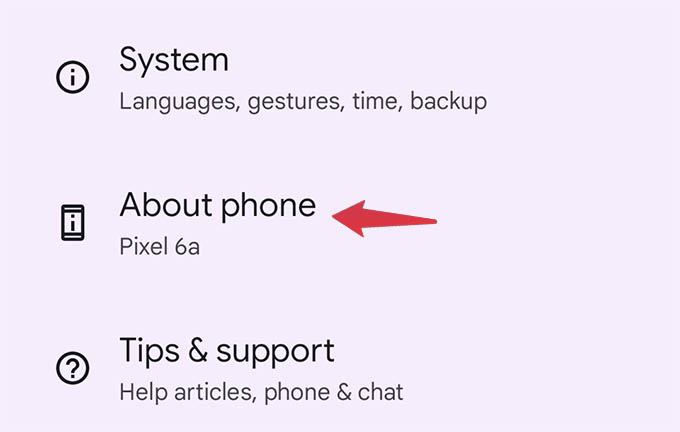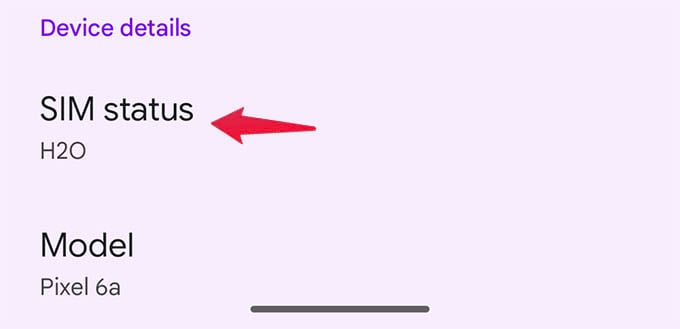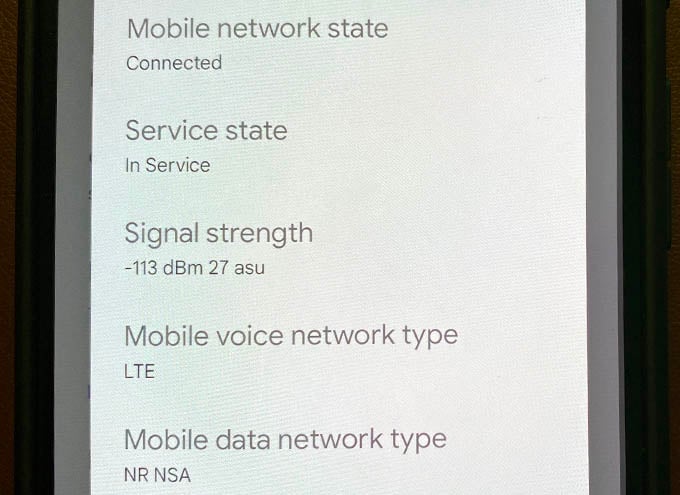Signal strength is the first thing to check when a call or text is not going through. But sadly, the signal bars on your phone’s status bar may not have been accurate enough. One or two bars on the signal indicator may not mean you have enough coverage to make a call. If you want to know the actual signal strength of your mobile network at the moment, there are some hidden options you should check out.
Here are best ways to see the signal strength on your Android phones including Google Pixel, Samsung Galaxy, and pretty much any other Android.
Check Signal Strength on Google Pixel
Google Pixel phones have the inbuilt option to check the network signal strength without using any third-party apps. You can access the option from the Pixel Settings window where you can see the dBm and ASU values to determine if you have a good signal strength.
Swipe down from the top of your phone to open the Notifications panel, then tap on the Settings icon.
Or, you could launch the Settings app from the app drawer.

With the Settings app open, scroll to the bottom till you see the About Phone.
Now, tap on SIM Status followed by Signal Strength.

You will now be able to see various details such as Network name, Signal Strength, and even the type of network. It will also show you if your network is roaming or not.

The signal strength will be displayed in decibels per milliwatt or dBm for short. The dBm ranges between -30 dBm to -110 dBm. You can determine that you have good signal strength when the dBm reading is better than -85 dBm. You will also see the ASU value of the signal strength. ASU is an Arbitrary Strength Unit.
Related: Have Full Control on Android Data Usage & Dramatically Reduce Mobile Bill
Test Signal Strength on Samsung Galaxy Phones
Samsung Galaxy phones have the inbuilt option to check accurate network signal strength, like on Pixel phones. Let’s see how to open network signal strength checker on Samsung Galaxy.
Launch the Settings app either from the Notifications Panel or from the app icon in the app drawer.
With the Settings app open, scroll to the very end and tap on About Phone.
Now, tap on the Status Information option.
You will see an option that says SIM card status. Tap on it to see details for your network such as Network Name, Mobile Network Strength, Service State, and also Signal Strength.
Related: How to Track Lost Samsung Phone Using Find My Mobile: A Complete Guide
Check Network Signal Strength on OnePlus
If you are using a different Android phone like OnePlus, the steps are a bit different. You will still have the inbuilt option to check network signal strength without using any third party apps.
Launch the Settings app on your OnePlus phone.
Scroll to the very bottom and tap on About Device.
Next, tap on Status followed by Signal Strength.
You will see details of your network such as name, connected state as well as the signal strength of your network provider.
Related: How to Stop an App from Using Cellular Data on Android
Secret Codes to Check Network Signal Strength on Any Android
All Android phones have a secret menu that can be accessed via a code. This secret menu is known as Engineering Mode or Service Test Mode. If you use an Android phone that has MediaTek Chipset, you need to install the MTK Engineering App and get access to the Engineering Mode menu. If you are using other devices, you can enter the code in your Phone dialer app to access the Menu.
- Samsung: +#0011#. Once the code has been neutered, tap on the three-dot menu and select Key Input. Enter Q0 and then select Stage. You will get to see all network-related info on this screen.
- Google Pixel, OnePlus, Motorola, Nokia: *#*#4636#*#*. Tap on Phone Information. You will see all network inf on this screen, including your signal strength.
Now that you have a better idea your network’s signal strength, you can then determine if you need a network booster or if you need to switch to a different phone plan that works better. With this information, you can also raise a ticket to your cellular network so that they could look for solutions to improve network coverage in your area.
